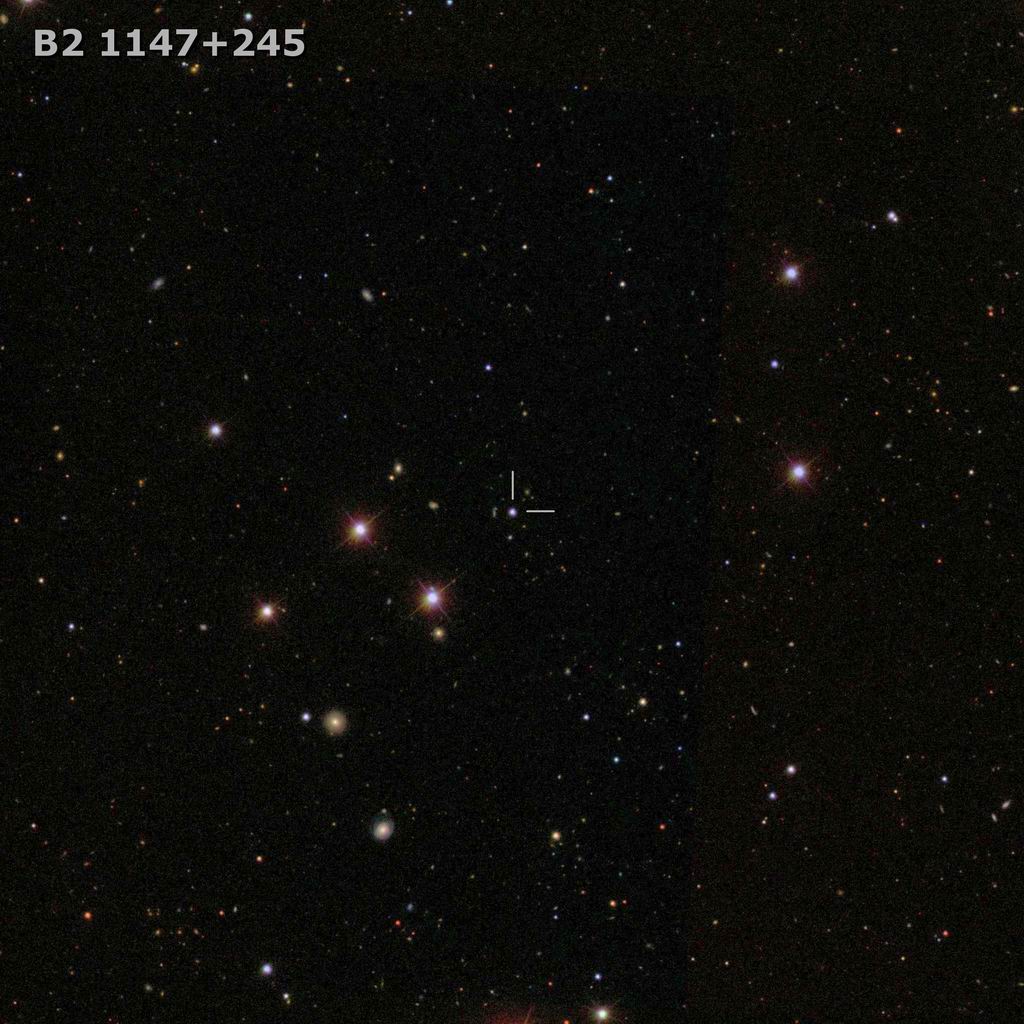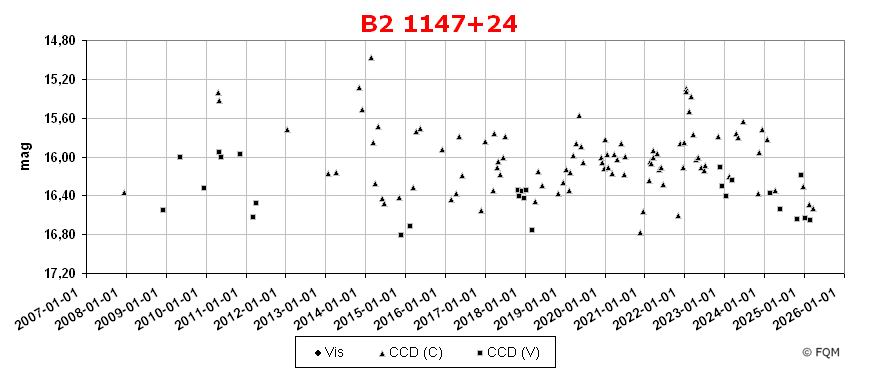Angel, J.R.P., Stockman, H.S. 1980, ARA&A, 18, 321; Optical and infrared polarization of active extragalactic
objects.
Colla, G., Fanti, C., et al. 1972, A&AS, 7, 1; The B2 Catalogue of radio sources - second part.
Dixon, R.S., Kraus, J.D. 1968, AJ, 73, 381; A High-Sensivity 1415 MHz Survey at North Declinations between
19 and 37 degrees.
Fiorucci, M., Tosti, G. 1996, A&AS, 116, 403; VRI photometry of stars in the fields of 12 BL Lacertae objects.
Fiorucci, M., Tosti, G. 1996, A&AS, 117, 475; Automatic optical monitoring of 10 Blazars.
Katajainen, S., Takalo, L.O., et al. 2000, A&AS, 143, 357; Tuorla quasar monitoring I. Observations of 1995-1997.
Kinman, T.D. 1976, ApJ, 205, 1; Photoelectric Magnitudes and Polarization Data for possible BL Lacertae Objects.
Moles, M., Garcia-Pelayo, J.M., Masegosa, J., Aparicio, A. 1985, ApJS, 58, 255; BVRI observations of BL Lacertae
objects.
Pica, A.J., Smith, A.G., et al. 1988, AJ, 96, 1215; Long-term optical behavior of 144 compact extragalactic objects -
1969-1988.
Rector, T.A., Stocke, J.T. 2001, AJ, 122, 565; The Properties of the Radio-Selected 1 Jy Sample of BL Lacertae
Objects.
Sowards-Emmerd, D., Romani, R.W., et al. 2005, ApJ, 626, 95; Northern Survey of Gamma-Ray Blazar Candidates.
Steinicke, W.; Katalog heller Quasare und BL Lacertae Objekte; Umkirch 1998.
Stickel, M., Fried, J.W., Kühr, H. 1993, A&AS, 98, 393; The complete sample of 1 Jy BL Lac objects. II.
Véron-Cetty, M.-P., Véron, P. 2001, A&A 374, 92; A Catalogue of Quasars and Active Nuclei: 10th edition.
Véron-Cetty, M.-P., Véron, P. 2003, A&A 412, 399; A Catalogue of Quasars and Active Nuclei: 11th edition.
Véron-Cetty, M.-P., Véron, P. 2006, A&A 455, 776; A Catalogue of Quasars and Active Nuclei: 12th edition.
Véron-Cetty, M.-P., Véron, P. 2010, A&A 518, 10; A Catalogue of Quasars and Active Nuclei: 13th edition.
Wills, D., Wills, B.J. 1976, ApJS, 31, 143; Spectroscopy of 206 QSO candidates and radio galaxies.
Zekl, H., Klare, G., Appenzeller, I. 1981, A&A, 103, 342; Optical Brightness Variations of BL-Lacertae Objects.
|


